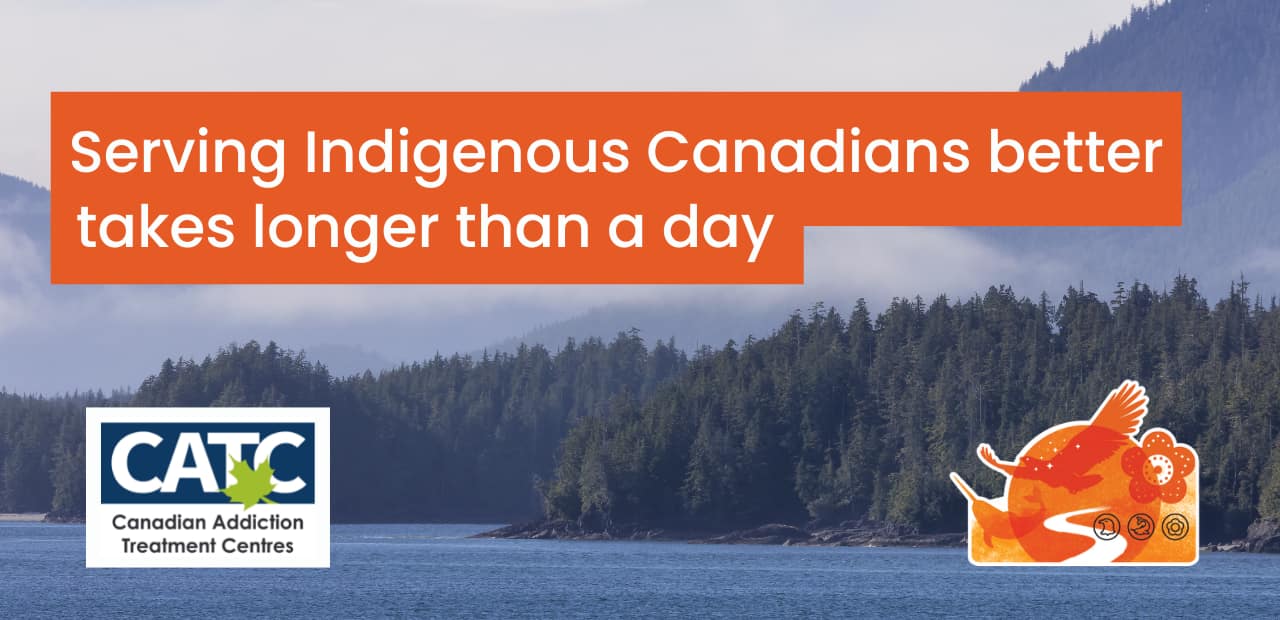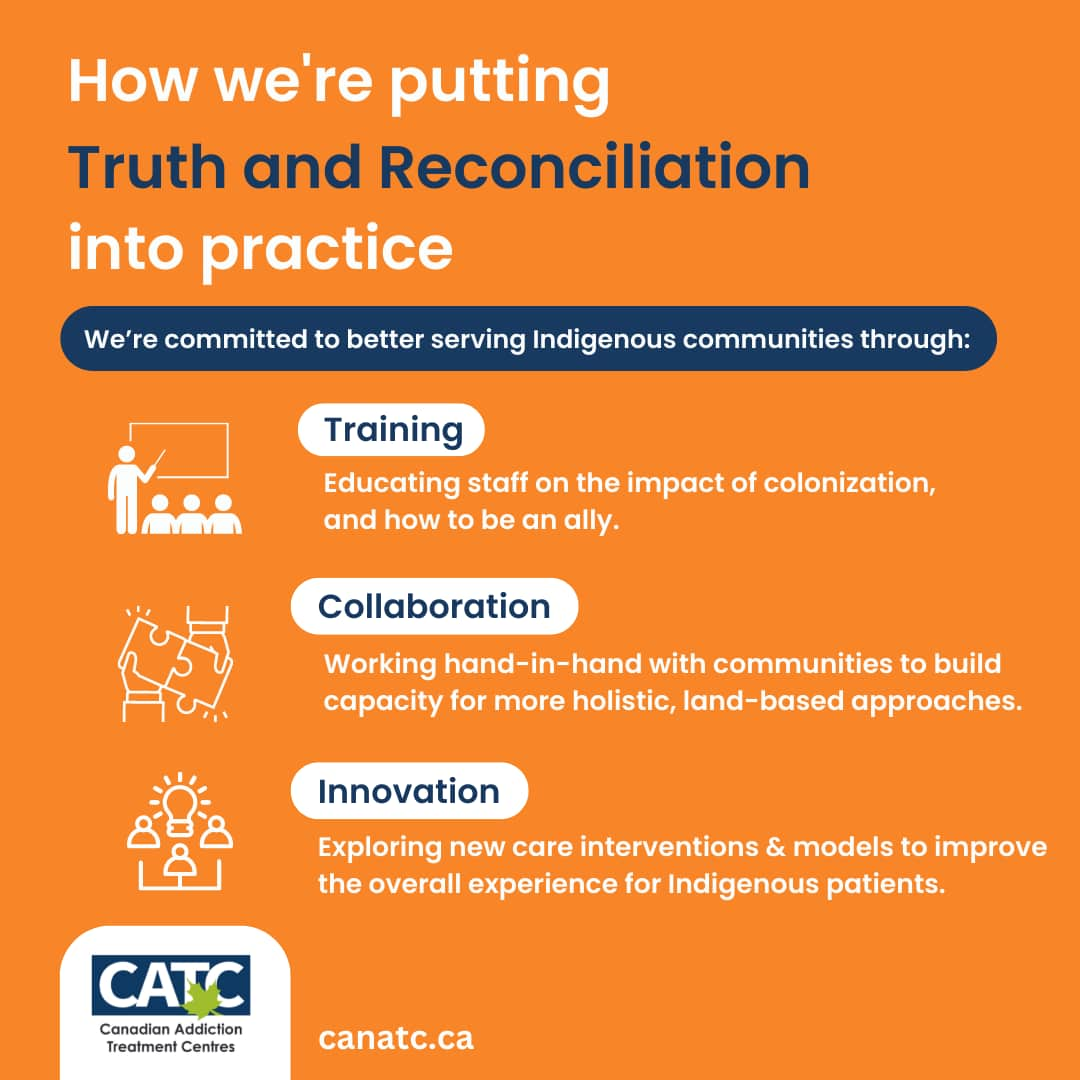Serving Indigenous Canadians better takes longer than a day
Serving Indigenous Canadians better takes longer than a day
 On September 30th, Canada marks its second annual National Day for Truth and Reconciliation, serving as an important reminder that Indigenous Canadians continue to grapple with the longterm effects of intergenerational trauma and inequity. We all have a role to play in unravelling the ongoing injustices caused by the residential school system and our country’s dark history of colonialism.
On September 30th, Canada marks its second annual National Day for Truth and Reconciliation, serving as an important reminder that Indigenous Canadians continue to grapple with the longterm effects of intergenerational trauma and inequity. We all have a role to play in unravelling the ongoing injustices caused by the residential school system and our country’s dark history of colonialism.
As Canada’s trusted community care partner for substance use disorder, we take this responsibility very seriously.
Canadian Addiction Treatment Centres remains deeply committed to increasing our capacity to deliver accessible, culturally-appropriate treatment for addictions and underlying health conditions to Indigenous communities across the country. Putting these words into action, we’re working closely with several First Nations communities in Ontario to build capacity for programs that meet their unique needs, on their own terms. “Improving how we connect and collaborate with Indigenous communities is a top priority for us”, says Kate Johnston, Director of Clinic Services at Canadian Addiction Treatment Centres. “The early results of these partnerships are extremely promising, and reinforce the critical importance of holistic, land-based healing approaches in recovery.”
At the same time, our GreeneStone facility continues to offer a specialized intensive Indigenous healing track, created in collaboration with local communities to ensure we’re offering best-in-class recovery support firmly grounded in our clients’ culture and beliefs. “Our Indigenous clients deserve to recover in an environment that supports and celebrates their whole selves,” says Danielle McCarron, VP of Inpatient and Virtual Programs. “Providing culturally-appropriate care shouldn’t ever be an afterthought or a “nice-to-have”; it’s a must.”
Indigenous Peoples still face systemic barriers to accessing health care, and are among our hardest-hit communities as the overdose crisis continues to surge across Canada. Opioid-related deaths among First Nations people in Ontario more than doubled during the pandemic and, in British Columbia, studies show Indigenous people are 5 times more likely to die as a result of using drugs, making up 10% of deaths despite representing under 3% of the population. Until statistics like these are a distant memory, we commit to bringing a better understanding of the lasting impact of colonialism to all aspects of our work.
If you or someone you know needs help, please reach out to your local care team.
